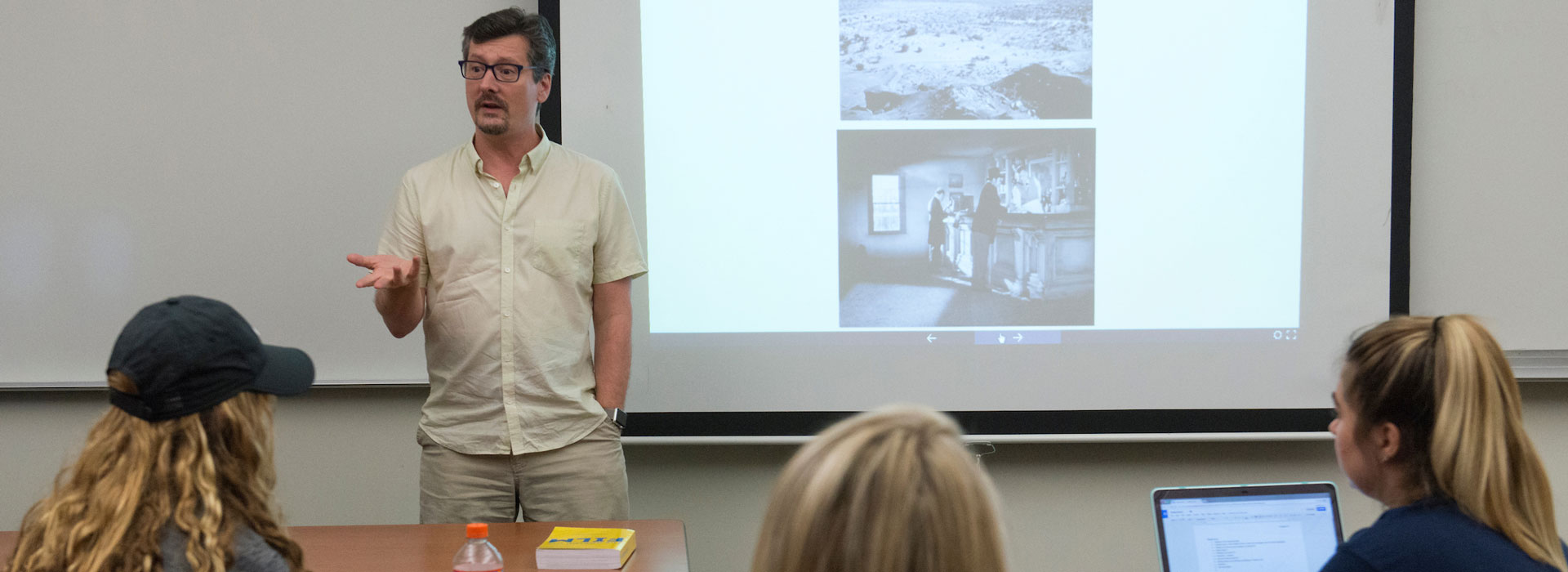This webpage is not intended to take the place of one-on-one advising, but we do ask that you review this information before meeting with your advisor. We believe the information provided on this webpage will support your independence. It will not only answer a lot of your questions but may also help you better understand the questions you need to ask.
When you finish reviewing this information, let us know how we can help. If you have any questions, please contact the program advisor.
Finding Success with Online Courses
+
Have Realistic Expectations. Online courses offer more flexibility, but they are not less work or easier than in-person courses. You should generally expect to spend 3-4 hours each week for every credit hour. In other words, if you are a fulltime student and take 12 credit hours each semester, you should expect 36-48 hours of work each week. If your goal is to grow intellectually through education, you need to invest the necessary time and effort. Please also take into consideration the different kinds of courses when planning your semesters. 100- and 200-level or lower-division courses usually provide a foundation of knowledge and skills while 300- and 400-level or upper-division courses tend to be more challenging.
Take Advantage of Support Services. Online learning requires a great deal of independence, but don’t let this prevent you from seeking help. Students who take advantage of support services are more likely to be successful. The Liberal Studies website includes informational links. You can also use the A-Z Index on the UIS homepage to find the websites and contact information of various support services. You should also feel free to reach out to your advisor when you need some guidance or have questions.
Embrace the UIS Community. There is great value to connecting with other online students. Who else would truly understand your frustration with a difficult assignment, or the stress of staying up late to get a test done before the midnight deadline, or the excitement of getting a great grade after investing so much personal effort into the work? It’s good to make some UIS friends along the way.
- Look for open discussion threads on your course discussion boards. Some courses provide a place for discussion that is not directly related to coursework.
- Participate in class discussion actively. This not only lets you get to know your classmates, but also helps your learning and performance in the class.
- Connect with classmates virtually, or consider starting a study group using Google Hangouts or another App.
In addition to students, you should interact with faculty. They really do want to hear from you and help you succeed. Instead of saying “I don’t understand the reading,” you might consider asking: “I just finished reading xxx. I understand xxx, but I’m not sure what the writer means by xxx.” This demonstrates your effort and engages your professor in the teaching process, rather than expecting them to do your thinking for you.
Degree Audit and LIS Degree Requirements
+
Degree Audit is a valuable resource and you should use it to monitor your progress toward degree completion. It includes transfer courses, the courses you have completed at UIS, and the UIS courses that you are currently enrolled in. Your audit report is not intended to take the place of academic advising. The audit report is unofficial, and it is tied to the requirements listed in your catalog year. It reflects the degree requirements listed in the catalog, but it may not present your unique information accurately. You will need to resolve any errors on your audit report before you graduate by petition. Your advisor can assist you with that.
Degree requirements are tied to the catalog year in which you started at UIS. Please see the catalog for more information on LIS Degree Requirements.
Courses Schedule and Registration
+
The Dynamic Course Schedule allows you to search the UIS schedule using a variety of criteria. You can fine-tune your search and narrow in on exactly what you need/want. Select a “Subject” before you click on “Class Search,” and you may use the other options to further narrow the results of your search. It may be best to limit your search criteria to “Subject.” For most programs, the full list of courses offered in a certain semester is manageable.
If you are interested in internships, projects, and/or prior-learning assessment for credit, you may consider IPL 300, IPL 301, and/or IPL 305. Detailed information is available on the Office of Engaged Learning website.
You should always make an appointment and discuss course planning with your advisor before registration begins. They can assist you in finding the appropriate courses and making sure you progress toward degree completion.
What Should You Do to Prepare for LIS 451 Senior Seminar
+
You won’t take LIS 451 Senior Seminar until your last semester, but you should start preparing for it now. You need to review what you have learned and experienced in all your UIS courses in LIS 451. It is important to organize and archive your learning materials for each course, including but not limited to syllabus, handouts and class readings, all your written assignments, exams/tests/quizzes, selected online discussion board posts that best represent your work in the course, feedback you received from your professor, examples of collaborative work with other students, peer feedback that you gave and received (you should remove the other student’s name), etc. Keeping these documents will not only help you complete LIS 451 successfully, but it will also help you build a learning portfolio.
You may consider using Box, a FERPA-compliant cloud service. You have 50 GB of UIS Box storage, which is usually more than enough to organize and archive your learning materials.
